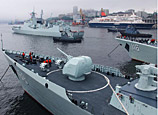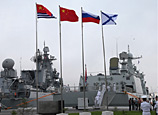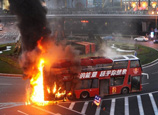
Economic growth may encounter greater resistance in the second half of the year underscored by lackluster factory production, economists said on Tuesday.
They were speaking after the National Bureau of Statistics reported a moderate increase in consumer inflation and persistent decline in factory-gate prices in June.
The consumer price index, a main gauge of inflation, rose by 2.7 percent year-on-year compared with a 2.1 percent increase in May. Food prices increased by 4.9 percent in June, remaining the major driving force of inflation.
The producer price index, a pricing indicator for output leaving factories, fell by 2.7 percent in June, the 16th consecutive monthly drop, reflecting sluggish market demand.
Economists say the world's second-largest economy is struggling with industrial overcapacity and potential financial risks, with the United States deciding to reduce quantitative easing as it sees GDP recovering slightly, and with Japan likely to have strong domestic demand and export growth based on monetary and fiscal stimulus measures.
Wang Tao, chief economist in China with UBS, said the central government, led by Premier Li Keqiang, wants to ensure stable albeit slightly slower growth and a stable financial environment without embarking on immediate de-leveraging or major restructuring that could be destabilizing.
"The most likely outcome, in our view, is that the Chinese economy will go through a period of sluggish growth and adjustment, restructuring some bad debt as well as overcapacity in the real economy," she said.
Li and central bank Governor Zhou Xiaochuan have reiterated since May that the monetary policy stance will remain "prudent", given an evaluation of the economic environment as "sound and stable".
The liquidity squeeze in the interbank market in June added to investors' concerns, with the People's Bank of China acting repeatedly since then to allay market fears and assure that the interbank rate — the rate of interest charged on short-term loans between banks — returns to normal.
Wang said a hard landing for the economy or a financial meltdown is unlikely in the near term, although serious structural challenges may not be solved soon.

















 Severe rainstorms batter SW China quake-hit regions | Pedestrians fall into river after bridge collapses
Severe rainstorms batter SW China quake-hit regions | Pedestrians fall into river after bridge collapses


![]()
